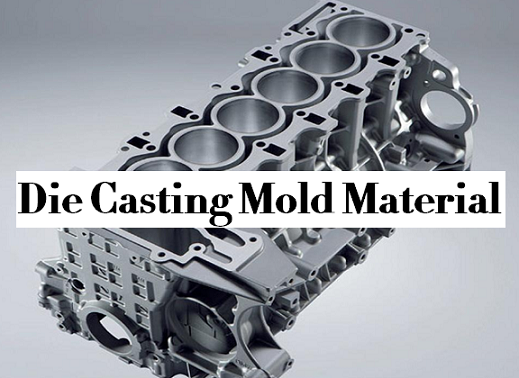Stahl Specialty Company Can Be Fun For Everyone
Wiki Article
Stahl Specialty Company for Beginners
Table of ContentsThe Greatest Guide To Stahl Specialty CompanyThe Ultimate Guide To Stahl Specialty CompanyExcitement About Stahl Specialty CompanyThe smart Trick of Stahl Specialty Company That Nobody is Talking AboutA Biased View of Stahl Specialty Company
Chemical Comparison of Cast Aluminum Alloys Silicon advertises castability by decreasing the alloy's melting temperature level and boosting fluidness during casting. Additionally, silicon adds to the alloy's toughness and wear resistance, making it beneficial in applications where resilience is essential, such as automobile components and engine components.It additionally boosts the machinability of the alloy, making it easier to refine right into completed items. By doing this, iron adds to the total workability of aluminum alloys. Copper raises electric conductivity, making it useful in electric applications. It additionally enhances deterioration resistance and includes to the alloy's general strength.
Manganese adds to the stamina of light weight aluminum alloys and enhances workability. It is commonly made use of in functioned light weight aluminum products like sheets, extrusions, and accounts. The visibility of manganese help in the alloy's formability and resistance to fracturing throughout manufacture processes. Magnesium is a lightweight component that gives strength and influence resistance to aluminum alloys.
Zinc improves the castability of light weight aluminum alloys and assists control the solidification process throughout spreading. It boosts the alloy's stamina and solidity.
Our Stahl Specialty Company PDFs
Due to the fact that aluminum-silicon alloys have good casting properties, high gas buildings, straightforward procedures, and superb rust resistance, aluminum-silicon alloys are most typically made use of in the die-casting sector in the house and abroad. At the exact same time, aluminum-silicon alloys are likewise relatively early and extensively recognized alloys established and utilized in die-casting. After continual study and renovation, the majority of the existing worldwide mainstream aluminum-silicon alloys have been finalized and are nothing greater than A356, A360, A380, ADC12, B390, and A413.
The main thermal conductivity, tensile strength, return strength, and prolongation differ. Select ideal basic materials according to the efficiency of the target product produced. Amongst the above alloys, A356 has the highest possible thermal conductivity, and A380 and ADC12 have the most affordable. The tensile restriction is the opposite. A360 has the most effective return strength and the highest possible prolongation rate.

The Basic Principles Of Stahl Specialty Company
In accuracy spreading, 6063 is well-suited for applications where elaborate geometries and top quality surface coatings are extremely important. Instances include telecommunication units, where the alloy's exceptional formability allows for smooth and visually pleasing styles while preserving architectural honesty. Likewise, in the Illumination Solutions market, precision-cast 6063 elements develop sophisticated and reliable lighting fixtures that need complex forms and good thermal efficiency.
(https://stahl-specialty-company-48547473.hubspotpagebuilder.com/stahl-specialty-company/discover-the-best-foundry-near-me-your-go-to-casting-foundry-for-aluminum-castings)
It brings about a finer surface area finish and better rust resistance in A360. Moreover, the A360 exhibits premium prolongation, making it suitable for facility and thin-walled parts. In accuracy casting applications, A360 is fit for sectors such as Consumer Electronic Devices, Telecommunication, and Power Tools. Aluminum Castings. Its enhanced fluidity permits detailed, high-precision parts like mobile phone coverings and communication tool real estates.

In accuracy spreading, aluminum 413 radiates in the Customer Electronics and Power Tools markets. This alloy's exceptional deterioration resistance makes it an outstanding selection for exterior applications, guaranteeing resilient, sturdy products in the discussed markets.
Some Known Details About Stahl Specialty Company
The aluminum alloy you pick will significantly affect both the casting procedure and the residential properties of the final product. Due to the fact that of this, you have to make your decision carefully and take an enlightened technique.Figuring out the most ideal aluminum alloy for your application will certainly suggest evaluating a wide selection of features. These comparative alloy characteristics comply with the North American Die Spreading Organization's standards, and we have actually split them into 2 categories. Casting Foundry. The first group addresses alloy qualities that influence the manufacturing procedure. The second covers attributes affecting the properties of the last product.
The alloy you pick for die casting straight influences several elements of the spreading procedure, like how simple the alloy is to function with and if it is prone to casting flaws. Warm cracking, additionally called solidification fracturing, is a typical die casting flaw for aluminum alloys that can result in interior or surface-level splits or splits.
Examine This Report on Stahl Specialty Company
Particular light weight aluminum alloys are much more at risk to hot fracturing than others, and your choice should consider this. Another usual flaw located in the die spreading of aluminum is die soldering, which is when the actors adheres to the die wall surfaces and makes ejection tough. It can damage both the cast and the die, so you should search for alloys with high anti-soldering properties.Corrosion resistance, which is currently a significant characteristic of aluminum, can differ considerably from alloy to alloy and is an essential particular to consider depending upon the ecological conditions your item will certainly be revealed to. Wear resistance is one more property frequently sought in aluminum items and can separate some alloys.
Report this wiki page